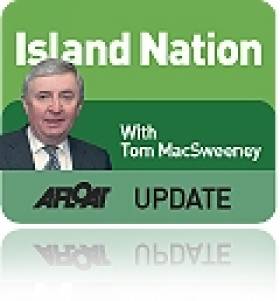Displaying items by tag: Cigarette butts
Conference Hopes to Bin Ocean Debris
It was very topical, because this week the Fifth International Marine Debris Conference is taking place in Hawaii, organised jointly by the National Oceanic and Atmospheric Administration and the United Nations Environment Programme. This is an attempt to deal with the increasing problem of debris in the oceans of the world.
A United Nations report revealed some pretty frightening facts to the conference. Just two kinds of rubbish make up more than half the marine debris in the world. One is predictable enough – the horror of plastic choking sea life. The other came as more of a shock. The second most abundant kind of marine litter is smoking-related. Cigarette butts and packing account for nearly half of all sea rubbish in some parts of the world, according to the UN.
About 40 per cent of the litter in the Mediterranean Sea comes from this source. In Ecuador, smoking-related refuse accounted for more than half of coastal rubbish.
Ocean debris is a severe threat to the marine eco system. It kills at least 1 million sea birds and 100, 000 mammals each year, according to the United States National Oceanic and Atmospheric Association. The general prognosis at the conference in Hawaii has been pretty grim. Things are getting worse and it is the fault of humans on land using the oceans as rubbish dumps.
As my grandson's homework showed, it takes two weeks for a bit of fruit thrown into a river or the sea to bio-degrade. It will be two months before a piece of cardboard breaks down, three months for a milk carton and matters get worse where a cigarette butt is concerned. That will take ten years to disintegrate, a Styrofoam coffee cup 50 years, a plastic bag over a hundred and the six-pack ring so often tossed overboard from boats 400 years, with the plastic bottle even worse at 450 years.
The threat and impact of marine debris have long been ignored. Perhaps it is the perceived vastness of the ocean and lack of visibility of marine debris, but the teachers in Crosshaven national school, on the edge of Cork Harbour deserve praise for making their young pupils aware of what throwing litter into a river or dumping it on a beach does.
























































